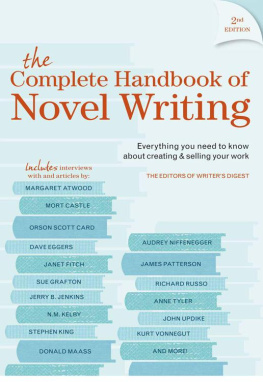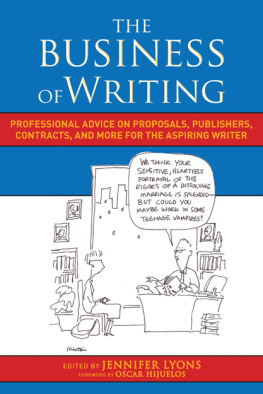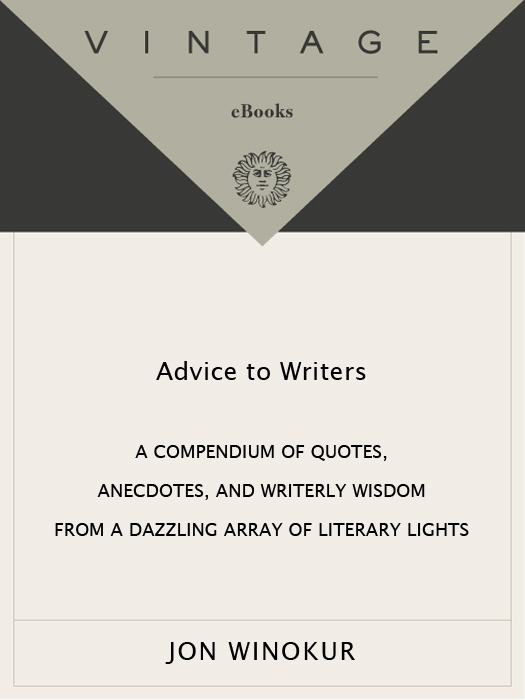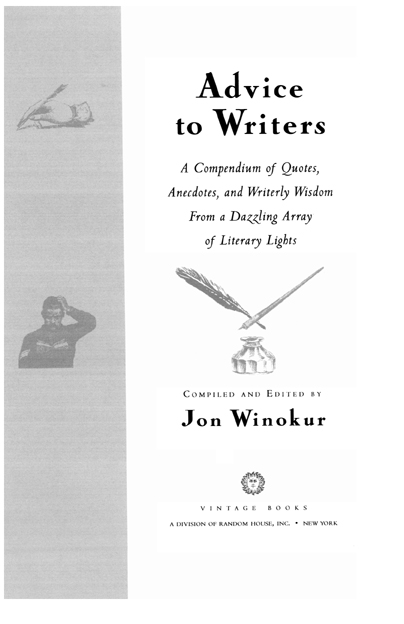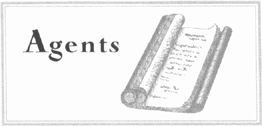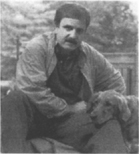 Jon WinokurAdvice to Writers
Jon WinokurAdvice to WritersJon Winokur is the author of The Rich Are Different and How to Win at Golf. He lives in Pacific Palisades, California.
Also by Jon Winokur
How to Win at Golf
Happy Motoring
(with Norrie Epstein)
The Rich Are Different
Je Ne Sais What?
Fathers
The Portable Curmudgeon Redux
True Confessions
Mondo Canine
Friendly Advice
A Curmudgeons Garden of Love
Zen to Go
The Portable Curmudgeon
Writers on Writing
Copyright1999 by Jon Winokur
All rights reserved under International and Pan-American Copyright Conventions. Published in the United States by Vintage Books, a division of Random House, Inc., New York, and simultaneously in Canada by Random House of Canada Limited, Toronto. Originally published in hardcover in the United States by Pantheon Books, a division of Random House, Inc., in 1999.
Vintage and colophon are registered trademarks of Random House, Inc.
The Library of Congress has cataloged the Pantheon edition as follows: Advice to writers / compiled and edited by Jon Winokur.
p. cm.
1. AuthorshipQuotations, maxims, etc. 2. AuthorsQuotations.
1. Winokur, Jon.
PN165.A385 1999
808.02dc21 98-49030
eISBN: 978-0-307-55415-4
Author photographMark Wolgin
www.vintagebooks.com
v3.1
Acknowledgments
Im grateful to all the writers, editors, literary agents, and booksellers who have dispensed advice about the writing life. Im especially indebted to my faithful correspondents, who contributed freely, and for free. This book would not exist without their generosity.
Introduction
T his book will not teach you how to write. Whether you use a fountain pen or a word processor, writing is finally sitting alone in a room and wrenching it out of yourself, and nobody can teach you that.
But you can learn, because writing is self-generating, one of the few skills you can acquire from a bookan otherwise pejorative phrase. Combined with a lot of trial and error: You dont just immerse yourself in books and then suddenly emerge a writer. You have to practice, because the writing muscle needs regular exercise, and no pain, no gain. There will be false starts and dead ends and self-doubt, but you dont have to go to Iowa or Bread Loaf, and you dont need a writing teacher. You need teachers.
You learn to write from other writers, from reading their novels, poetry, plays, biographies. But you have to read like a writer. A civilian reads for entertainment, information, solace. A writer reads for all these, and for craft and technique and tricks of the trade. A writer reads critically, noting what works and what doesnt, silently cheering the arabesques and booing the clunkers, quibbling about the choice of a word here and the use of a semicolon there, always judging. In a way its a curse: A writer never gets lost in a book, never surrenders to a text, never fully suspends disbelief, because a writer is always watching, even when hes reading.
The sixteenth-century French writer Michel de Montaigne, the inventor of the modern essay, once remarked that there are more books upon books than upon all other subjects. Its still true. In addition to models to emulate, there are all kinds of books upon books: how to find a publisher, how to do research, how to prepare a manuscript. From Judith Appelbaums indispensable How to Get Happily Published, to the venerable Elements of Style and Paris Review Interviews, to such modern classics as Anne Lamotts Bird by Bird and Richard Rhodess How to Write, these books instruct, inspire, and feedbut never quite satisfyan intense curiosity about the process of making literature.
And you can learn straight from the masters, because writers love to give advice, to colleagues and tyros alike. Down the centuries theyve carried on a lively discussion of their craft, much of which is preserved in print. They share their hard-earned knowledge about everything from how to write dialogue to how to behave on television. They reveal trade secrets, they declare rules and commandments, and they expose the creative process. Here are samples of that writerly wisdompithy pronouncements and brief readings on the art of writingfrom their rooms to your room.
J. W.
P ACIFIC P ALISADES , C ALIFORNIA
Authors Note
M ost of these quotations are from writers, but there are also contributions from a number of booksellers, editors, and publishing executives. And please note that Ive quoted writers and not authors. For me, an author is anyone who has published a book, while the word writer carries a value judgment. A writer is an artist, someone who writes out of the gut. A writer is something you are, whereas author refers to something you do. Almost anyone can be an author, from anthologists to autobiographers, diet doctors to financial gurus. Authors are a dime a dozen. Writers are rare.
Get an agent. Make no excuses for the failure to do so. Get an agent. Otherwise youre a babe among wolves.
Brendan Francis
It is more difficult to get a qualified literary agent than it is to get a publishing contract.
John Boswell
First of all, you must have an agent, and in order to get a good one, you must have sold a considerable amount of material. And in order to sell a considerable amount of material, you must have an agent. Well, you get the idea.
Steve McNeil
Most large trade publishers return unsolicited manuscripts unread or scarcely glanced at. Publishers that refuse to read slush generally return manuscripts with printed notices stating that the firm reviews only submissions made by literary agents. In effect, agents have become the slush pile readers of the publishing industry.





